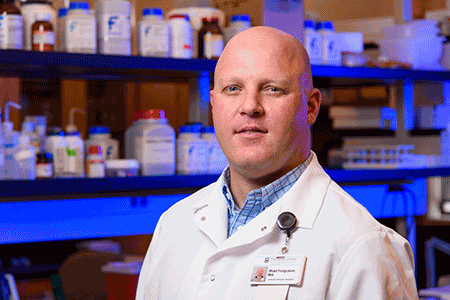Scientists say gut problems that children with autism experience may not be linked to diet.
Instead, they say it’s more likely that stress is the cause of problems such as constipation and irritable bowel syndrome in autistic children.

Researcher Brad Ferguson: “an increased reaction to stress does appear to be a contributing factor” in gut problems
Researchers at the University of Missouri School of Medicine carried out the study.
An earlier study by the team identified a relationship between increased stress and gut problems in people with autism.
In their latest research, the scientists studied 75 children between the ages of five and 18. The work took place at the university’s Thompson Center for Autism and Neurodevelopmental Disorders.
Carers completed a questionnaire. They assessed the children’s gastrointestinal symptoms and food intake over the past month.
The children also had two stress tests. Scientists assessed their stress levels by measuring cortisol. This is a hormone that the body releases in times of stress.
Brad Ferguson is a researcher at the Thompson Center for Autism and Neurodevelopmental Disorders.
He said diet did “not appear to be a driving factor” in gastrointestinal problems in the children his team studied.
‘More research needed’ on gut problems
He added: “More research is needed to better understand the causes of these issues, but an increased reaction to stress does appear to be a contributing factor.”
Studies suggest anywhere between 23 per cent and 85 per cent of children with autism have gastrointestinal difficulties.
Recent studies have shown treatments regulating bacteria in the intestines have resulted in improvements in autism.
In the Missouri study, children with regressive autism were found to have a stronger connection between gut problems and stress.
The study is titled ‘Associations between Dietary Composition and Gastrointestinal Symptoms in Autism Spectrum Disorder’. The researchers presented it at the 2017 International Meeting for Autism Research in San Francisco.
Related:
- Evidence grows for autism link to gut
- Study reinforces role of gut health
- Food enzyme tested as autism treatment
- Study finds faecal transplants effective
Published: 20 July 2017















